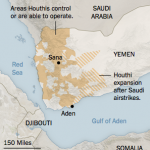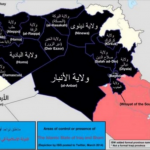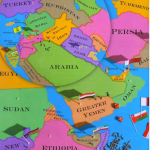サファー・アハマドのイエメンについてのドキュメンタリーについて昨日紹介したけれども、これを4月7日に放送した米公共放送局PBSは、イエメン情勢についての基礎情報や最新の分析を次々と放送したりウェブに上げている。
元FBI捜査員で、9・11事件以前にイエメンでのアル=カーイダの活動を追いかけていたアリー・ソウファーンのコメント。ソウファーン・グループは、アル=カーイダとその関連組織や、「イスラーム国」への義勇兵の渡航や帰還兵の問題についての、国際的なメディアの主要な情報源の一つです。
“Yemen is Becoming an Extremist’s Dream. Was it Predictable?,” Frontline, PBS, April 7, 2015.
コメンテーターとはどういうことをどういう風に言うべきか、ということを勉強させられます。
例えば、本来はイエメン内部の権力闘争なのだが、各勢力がサウジを筆頭に外部の地域大国を引き込む。そうするとその後は地域大国間の代理戦争になり、地域大国間で解決するしかなくなるという問題について。
Every entity in places like Yemen or in places like Syria or places like Iraq reports to a regional power. Unfortunately, [Yemen] became a proxy war. There were local wars, local conflicts. Regional powers used them and injected sectarianism in them a little bit and made it regional and sectarian conflicts.
そして宗派紛争化させられるともう止められなくなる、という話。統治や改革について語れなくなり、内戦の経済要因や部族要因や政治要因について語れなくなり、宗教と宗派問題の話ばかりになり、人々は内戦の真の原因を忘れてしまう。
The moment you inject sectarianism to it, you have a similar situation to what we have in Syria or similar situation to what we have in Iraq … So the moment that sectarianism becomes a problem, then you’re not talking about governments; you’re not talking about political reform; you’re not talking about economic factors or tribal factors or political factors that led to the problem at hand. You start talking about issues that have to do with religion and sectarianism, and people are really blinded to the real reasons that they started this war in the first place.
最悪の場合どうなるのですか?という質問が常にあるが、これに対しては、
One of the things about the Middle East, especially recently, there is always a worst case scenario and a worst worst case scenario. Unfortunately, today the [situation in] Yemen is in its worst case scenario, but I am not convinced that this is the worst …
だって。
中東については、特に最近は、最悪のシナリオと、最悪の最悪のシナリオが常にあるのだが、残念だが、現在のイエメンが最悪のシナリオだと(もっと悪いシナリオがない)とは言い切れない・・・という趣旨でしょうか。
「成り行きに注目」と言うにしても、センスの良い言い方というものはあるのですね。







